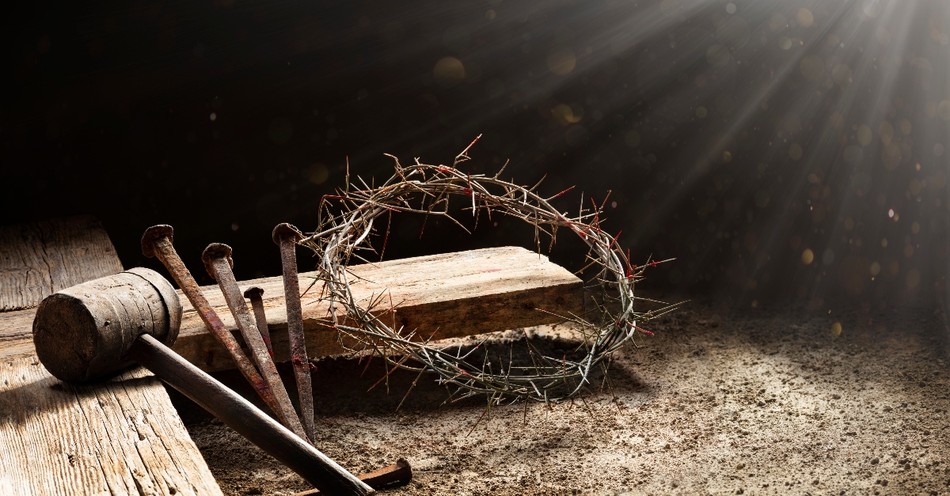This passage of Scripture is speaking about the call to holy living. We are to, “with minds that are alert” (be prepared for action), “be sober” (live with self-control), “and set your hope on the grace to be brought to you when Jesus Christ is revealed at his coming” (set our expectation).
The Lord God is constant, good, and just. He is dissimilar to the Roman mythology of divine beings — he is not warlike, two-faced, or adulterous. Not at all like the gods of the pagan factions that were famous in the first century, he is not homicidal or wanton.
He is a God of justice and mercy who focuses on every one of his children. Our blessed God anticipates that we should desire to be like him—holy and righteous. Like him, we ought to be both benevolent and just. Like him, we should forfeit ourselves for other people.
After people submit their lives to Christ, they actually may feel a pullback to their prior ways. Peter advises us to resemble our Father in heaven, sacred (holy) in all that we do.
What Does it Mean to Be Holy?
Holiness implies being completely committed or devoted to God, put away for his unique use, and put aside from wrongdoing and its impact.
We are to be separate and unique, not having a place within the world. What makes us different is God's characteristics in our lives. Our concentration and needs should be his.
All of this is in direct differentiation from our prior ways (1 Peter 1:14). We cannot, in our own power, turn out to be holy. However, God gives us his Holy Spirit to assist us with living for the Lord and to empower us to triumph over sin.
We should be wary of using the “I just can’t help it” reason for not resisting the urge to slip into transgression. We are to approach God's ability to liberate us from the hold of transgression.
Respectful dread is not fear, yet it is the solid regard of a Christian for the almighty God. Since God is the Judge of all the earth, we should not overlook him or treat him nonchalantly.
We should not expect that our special status as God's people gives us the opportunity to do anything that we would like to.
We should not have an attitude like that of spoiled children (overindulged, grandiose, narcissistic). However, we are to be a people who are appreciative and desire to recognize our magnificent Father.
God redeemed us from the oppression of transgression, not with cash, but rather with the valuable blood of His own Son, Jesus (Romans 6:6-7; 1 Corinthians 6:20; Colossians 2:13-14; Hebrews 9:12).
We were and are unable to escape from transgression and sin all by ourselves. It is only through the life of Christ, the Son of God, that can set us free.
Christ's penance for our transgressions was not a bit of hindsight, not something that God chose to do when the world fell out of discipline. This arrangement had been underway by the omniscient, timeless God sometime before the world was made.
What solace the Jewish believers must have felt to realize that the coming of Christ and his work of salvation was arranged well before the world had started.
This guaranteed them that the Law was not rejected on the grounds that it did not work, yet that both the Law and the arrival of Christ were important for God's timeless arrangement.
What Is the Significance of the Blood of Christ?
Genuine love includes caring and giving. Along these lines, a narcissistic individual cannot genuinely love. God's adoration and absolution free us to remove our eyes from ourselves and address the issues of others.
By forfeiting his life, Christ displayed his love for us. Presently we can love others by following his model and by sacrificially giving of ourselves.
In verse 24, Peter is citing Isaiah 40:6-8. He reminds Christians that everything in this life (assets, achievements, individuals) will ultimately disappear and vanish.
God's will, his Word, and his work are eternal. We should quit the transitory and center our time, energy, and money on the everlasting, which is the Word of God and our new, never-ending life in Christ.
For everyone belongs to me, the parent as well as the child — both alike belong to me. The one who sins is the one who will die (Ezekiel 18:4).
The Apostle Peter, here, is speaking of the work of God for our salvation. We stand under the judgment of God, and that has not changed, for God has not changed. All through the Old Testament, the shedding of the blood of an innocent was required.
God told Moses at the First Passover to use the blood of a spotless lamb (Exodus 12:5-7). This typified the time when Jesus, our Savior, would come to die as the perfect sacrifice.
Silver and gold are purified with intense heat. The dross is removed to show only the pure metal. However, it still corrupts over time.
When we pull the fine silverware out of the cabinet when we have company for dinner, it is tarnished and must be cleaned. We are not redeemed with corruptible things (Isaiah 52:3).
Everything in the world serves a purpose. Life is vain, and there is nothing more meaningless than life apart from Christ. Humanity without God is meaningless, and humanity has nothing to offer to God for their redemption. What can we do to redeem ourselves? Nothing.
The precious blood of Jesus is not mentioned in some churches. Some may ask why that is. The blood has been removed from some liberal hymns for being too “crude.”
The Apostle Peter was with Jesus for three years, so I am inclined to believe that he knew Jesus fairly well. He wrote that Jesus was without spot or blemish.
People say, “I do not want to hear about the blood. I do not like that ‘old slaughterhouse religion.’ How and why is ‘the blood’ so important?”
The next day John saw Jesus coming toward him and said, “Look, the Lamb of God, who takes away the sin of the world! (John 1:29).
Why Does This Matter?
If anyone depends upon water baptism, church membership, confirmation, communion, or any type of good work to get into heaven, they will be rejected like the bloodless offering of Cain’s sacrifice. The blood of Christ was the price required to purchase our Salvation.
How much more, then, will the blood of Christ, who through the eternal Spirit offered himself unblemished to God, cleanse our consciences from acts that lead to death, so that we may serve the living God! (Hebrews 9:14).
Religion will always substitute something besides the blood of Christ, but it will not work. The precious blood of Christ was the price paid for man’s redemption. When we stand before God at the judgment seat…what will be our outcome?
Christ, our Redeemer, died on the cross, Died for the sinner, paid all His due; All who receive Him need never fear, For He will pass, will pass over you.
When I see the blood, when I see the blood, When I see the blood, I will pass, I will pass over you (Church Hymnal “When I See the Blood”).
For further reading:
What Does it Mean to Be Washed in the Blood?
In Remembrance of the Body and Blood of Christ
Photo Credit: ©iStock/Getty Images Plus/RomoloTavani










